A History Lesson from the Golden Age of Radio
We hold these truths to be self-evident, that all men are created equal, that they are endowed by their Creator with certain unalienable Rights….
—The United States Declaration of Independence, 1776—
A condensed version of this article is available here.
Norman Corwin (1910-2011) has been called the poet laureate of radio. The title is fitting, because during the 1930s and 1940s, he used his writing talent and other creative abilities to produce radio dramas that addressed serious issues in engaging, entertaining ways. Among the first to take this approach, Corwin also was prolific.
The thirties and forties, you may know, were part of an era called “the golden age of radio.” This period began in the early 1920s when radio programming initially captured the public’s imagination and lasted until the mid-to-late 1950s, when television became the medium of choice for drama. Radio survived, but its dramatic programs were replaced largely by music. Those of us who have lived most of our lives after radio’s golden age will do well to develop an appreciation for the medium’s influence over American life, especially during the heart of the period—the 30s and 40s. In 1947, a professional survey found that 82 percent of Americans listened to radio regularly.
Norman Corwin grew up in Massachusetts. Although he initially worked as a newspaper journalist, he still was in his early adult years when he found his niche in radio. Corwin became both a beneficiary and a catalyst of the medium’s growing popularity. One job led to another, and on April 25, 1938, he began working for CBS as a program director. Initially he directed Living History, a 15-minute program that aired on Wednesday evenings; Americans at Work, a 30-minute program airing Thursday evenings; and Adventures in Science, a 15-minute program airing on Friday evenings.
Additional directing opportunities followed, including that of directing The Red Badge of Courage for Columbia Workshop, a highly regarded series. It was a huge break! Other successes followed, and the producer soon was given his own show—Norman Corwin’s Words Without Music. The goal of the program, Corwin said, would be to make poetry more enjoyable. One week before the Christmas show was to air, Corwin was asked what he had in mind for holiday episode. Off the top of his head, he replied, “The Plot to Overthrow Christmas.” Corwin realized that no such poem existed and that he would have to write the program from scratch. He did so, impressing both his listeners and coworkers, Edward R. Murrow among them. You can hear and download a rebroadcast of “The Plot to Overthrow Christmas” here. Interestingly, when he hired Corwin to work for CBS, vice-president William B. Lewis didn’t know he also was hiring a writer.
The months that followed afforded Norman Corwin many additional opportunities to write, direct, and produce dramatic audio programs. In 1941 he had the responsibility for Columbia Workshop for just over six straight months—26 weeks. These programs, which began on May 4 and concluded on November 9, came to be known as “26 by Corwin.” Norman Corwin was a major player in radio, yet ironically, following the series, CBS decided to let him go.
Former CBS vice-president William B. Lewis, the man who had given Corwin a job at the network, now was working at the Office of Facts and Figures in Washington D.C. His job was related to the growing war effort, even though the US had not yet entered the war. Keenly aware of the national calendar, President Roosevelt tossed out the idea to Archibald MacLeish,1 who was director of the Office of Facts and Figures, that radio would be a great platform for a national celebration of the 150th anniversary of the ratification of the Bill of Rights. That anniversary would occur on December 15, 1941. Lewis heard about the idea and suggested Corwin to spearhead it. The website that honors Corwin today gives this account.
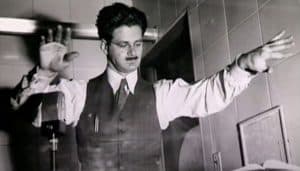
At first Corwin resisted, having burned himself out on 26 by Corwin and feeling the sting of defeat by not being retained by CBS, but Lewis persisted. Finally, Corwin accepted and headed to Washington DC, arriving on November 17, 1941, to begin research for the program in the Library of Congress—a mere 26-days before the broadcast. Then he came down with the flu; still he persisted. On December 4, 1941, with the script three-quarters complete, Corwin got on the Century train bound for Los Angeles, where the bulk of the show would originate. While en route, on December 7, 1941, Corwin learned of the Japanese attack on Pearl Harbor. The show, he was informed, was now even more vital to a nation newly at war.
In an interview in 2004, Norman Corwin recalled the program and the events that led up to its airing.
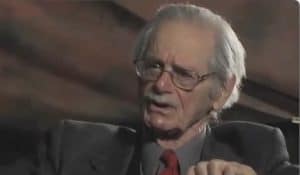
Most of the country’s radio stations carried the program. An arrangement had been made for all four of the major radio networks—CBS, Mutual, NBC-Red and NBC-Blue [NBC was organized as 2 networks at the time]—to broadcast it. On the east coast it aired at 7:00 p.m. and on the west coast at 10 p.m. The birthday celebration originated, not just from Hollywood, but also from Washington, DC and New York. Even President Roosevelt participated. Riding a tide of intense patriotism, Americans gave We Hold These Truths the largest radio audience in history for a dramatic performance. Nearly half the US population—63 million people—tuned in.
Norman Corwin won a George F. Peabody Award for the show. He also was reinstated at CBS, where he would remain until 1949. And in 1993, the writer-producer-director was admitted into the National Radio Hall of Fame. As for We Hold These Truths, it was recognized as recently as 2005 when it was named to the National Recording Registry.
Here are a couple of interesting side notes about We Hold These Truths.
The first of two major narration parts began as Jimmy Stewart highlighted the sights and sounds of Washington, DC. Stewart was perfect for this role, given that just two years earlier, he had played Jefferson Smith in the 1939 Frank Capra film Mr. Smith Goes to Washington. For playing Smith, Stewart earned an Academy Award nomination for best actor; but in the end, Robert Donat won this award for his role as Charles Edward Chipping in Goodbye, Mr. Chips. As you may recall, many consider 1939 Hollywood’s finest year.
Claude Rains and James Stewart in Mr. Smith Goes to Washington
Orson Welles took the sound stage for the second major narration part. During the dress rehearsal for the program Welles began using his voice modestly, gradually increased in intensity, and brought his speech to a powerful crescendo at the end.
Orson Welles in 1937
The cast was riveted and applauded Welles when he finished, but Norman Corwin was concerned. Would Welles be able to return to the ground floor before he started talking on the actual broadcast? Leonard Maltin writes, “Welles started out at the fever pitch at which he’d concluded the rehearsal—and then had nowhere to go, vocally or emotionally. The show still is impressive today, but Welles’ narration sounds overwrought.”2
You can listen to and download Norman Corwin’s birthday celebration for the Bill of Rights from this page, and I recommend highly that you do. For your convenience, you also can hear it here.
Why is We Hold These Truths so important?
- First, it reflects a depth of understanding of freedom and civil order that has eluded us today. Leonard Maltin writes,
Like all of Corwin’s best work, it [We Hold These Truths] was built on a foundation of genuine curiosity and the quest for knowledge—about the nature of the Bill of Rights, how it came about, and how it affected people. Corwin was never one to take the easy or obvious road, nor was he given to cheap sentiment. He celebrated what was best about America by showing its flaws as well as its strengths, by refusing to duck issues and controversies that had always surrounded the amendments to the Constitution.3
- Yet a second and even more important reason to rediscover this radio program is Americans’ need to become familiar with what actually happened in history with regard to their nation’s inception. Today as never before, history is being rewritten, and as a result American liberties are increasingly at risk.
- Thirdly and finally—and this is absolutely crucial—modern Americans need to rediscover the Founders’ perspective on rights. We see their perspective on rights in the Bill of Rights—all through the first Ten Amendments to the US Constitution. The Founders’ view contrasts sharply to the modern view. Simply put, to the Founders, rights were God-given and were maintained when government was restrained. Unfortunately, most people today believe rights are theirs when the government intervenes in their lives in preferred ways; they thus believe that government is the source of rights. We’ll explore this contrast in a future post.
To the Founders, rights were God-given and were maintained when government was restrained.
Next week, we’ll provide some historical background; we’ll examine how the Constitution came to be, and how the Bill of Rights became a part of it.
Stay tuned—or, as they used to say decades ago on radio, don’t touch that dial!
Part 2 is available here.
Copyright © 2016 by B. Nathaniel Sullivan. All Rights Reserved.
Notes:
1John Dunning, The Encyclopedia of Old-Time Radio, (New York: Oxford University Press, 1998), 165.
2Leonard Maltin, The Great American Broadcast: A Celebration of Radio’s Golden Age, (New York: New American Library, 1997), 125.
3Maltin, 46.
image credit: Norman Corwin as a young man
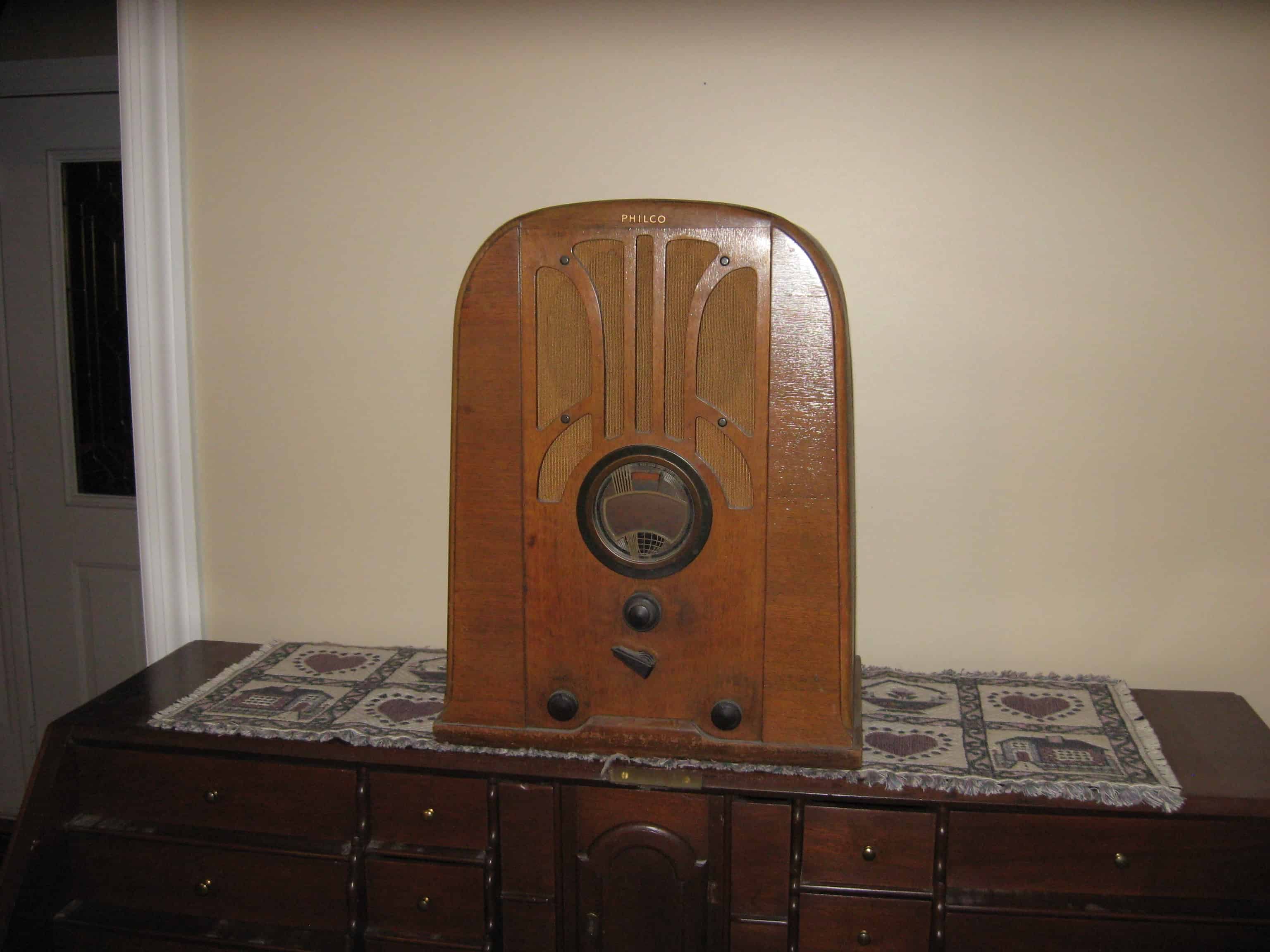
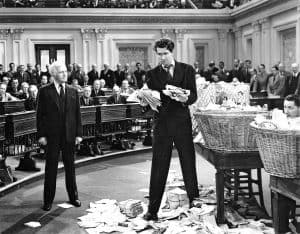
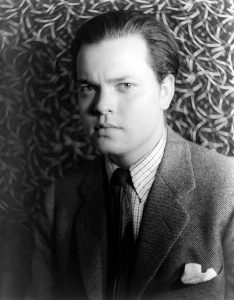
Be First to Comment